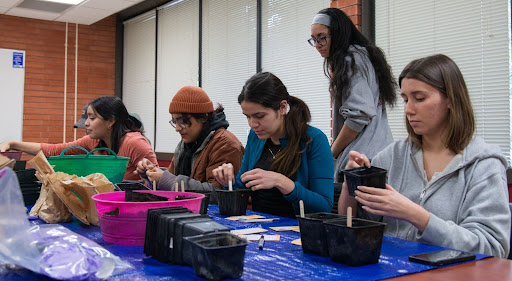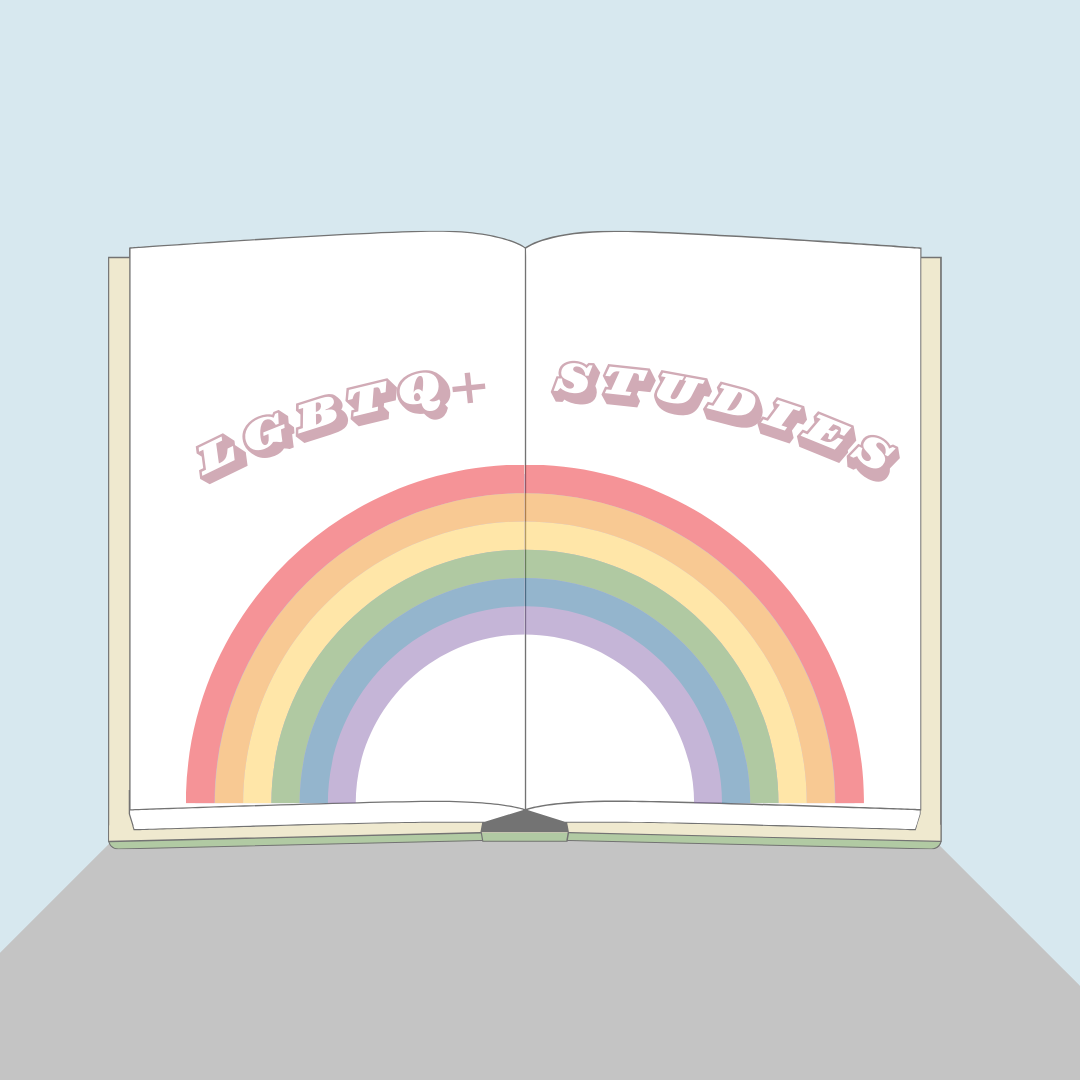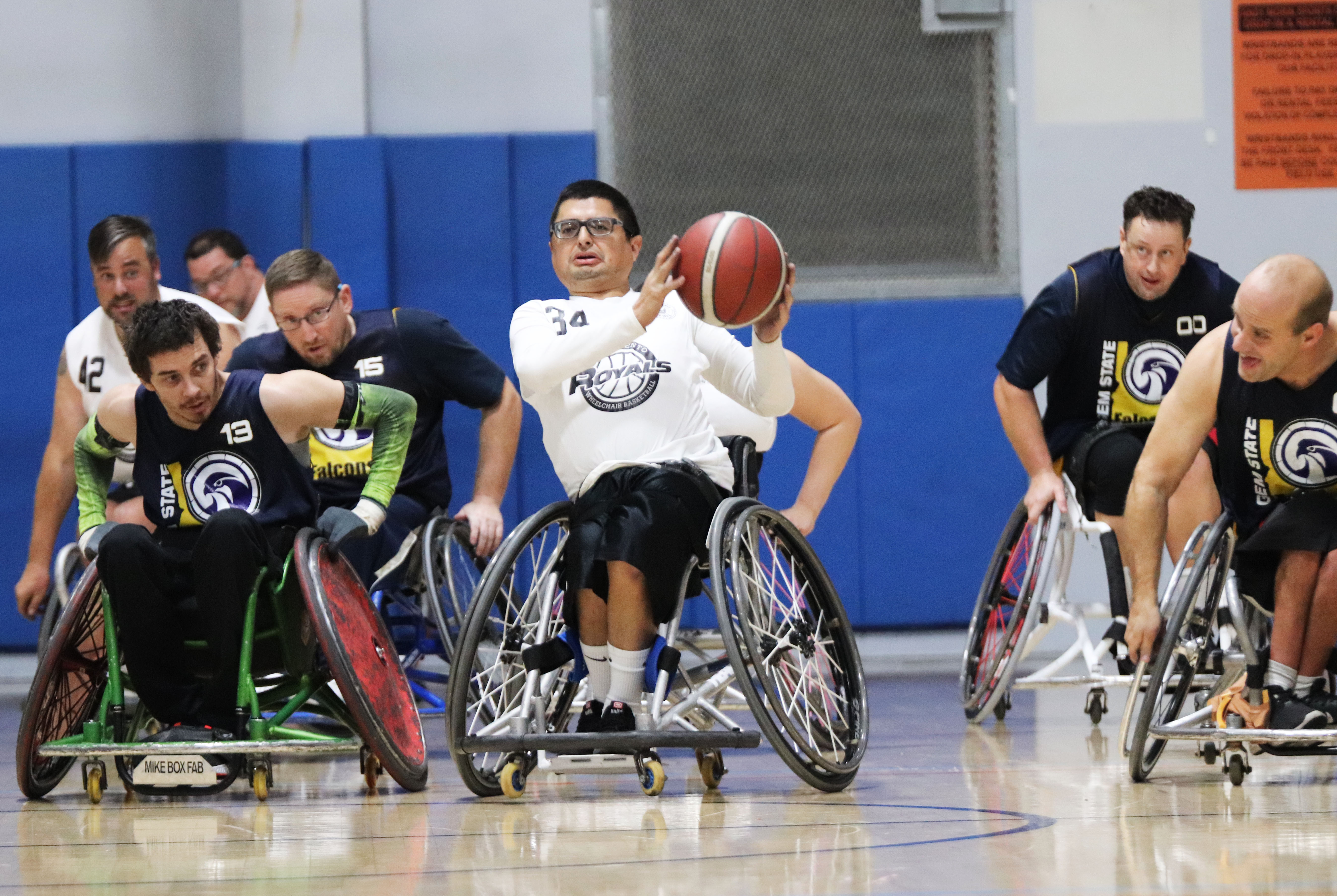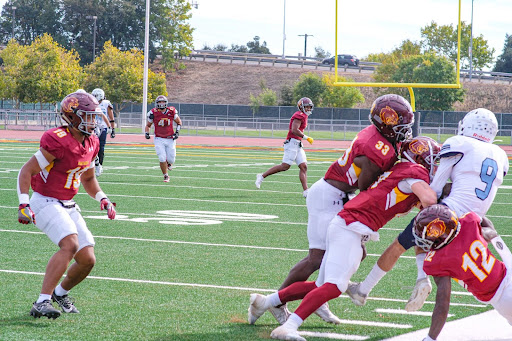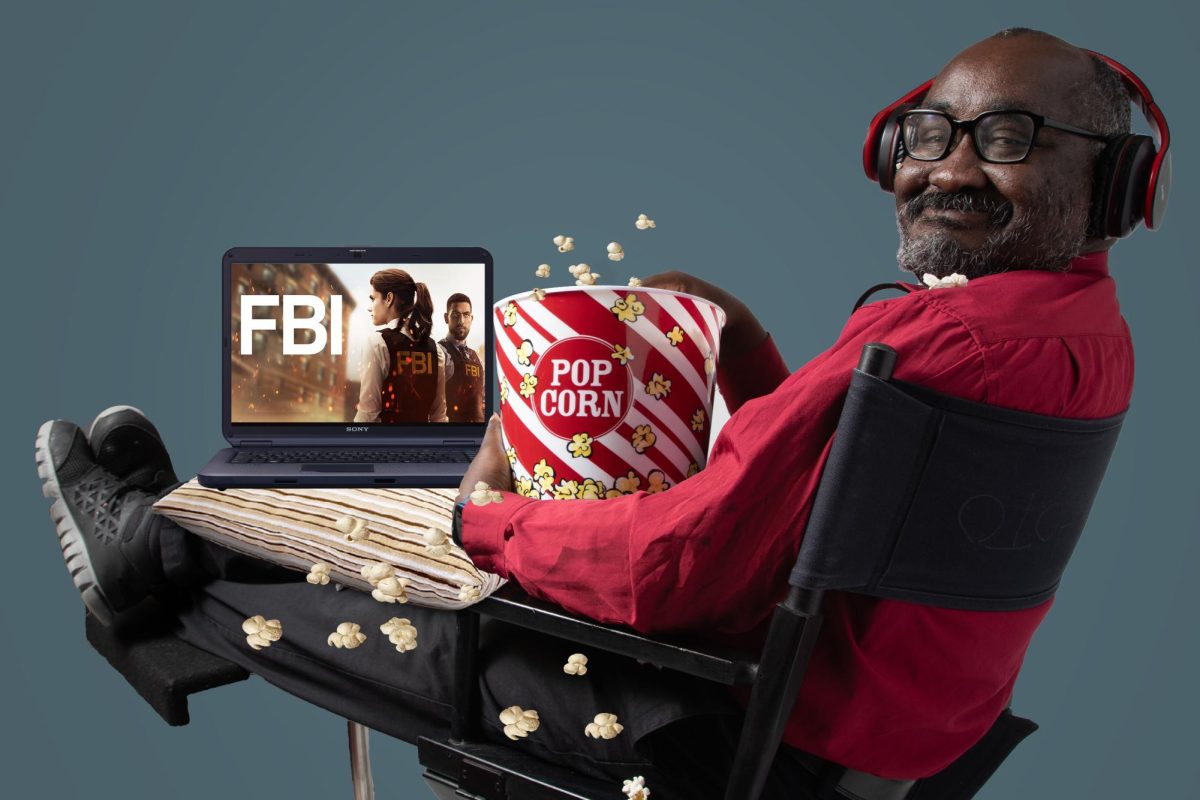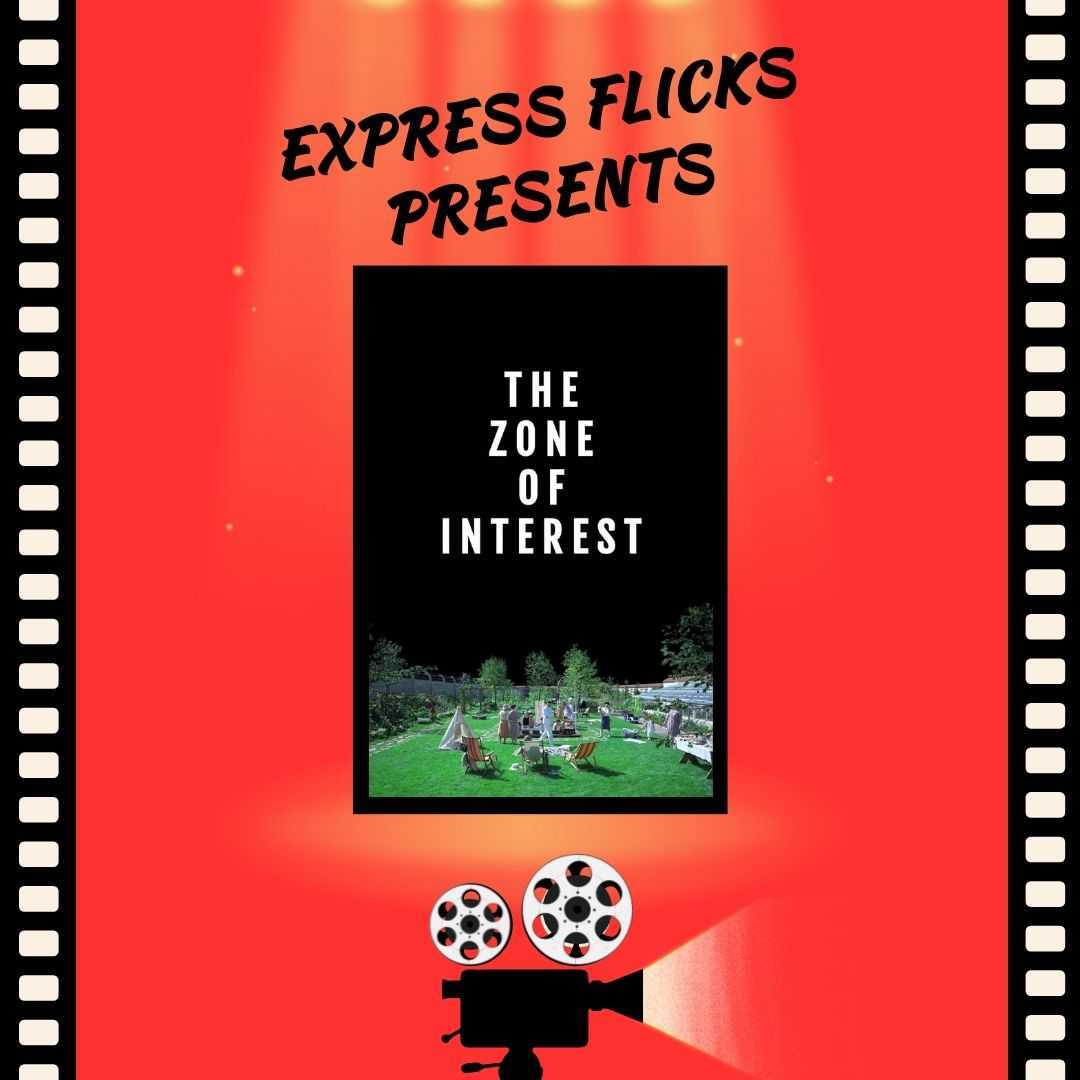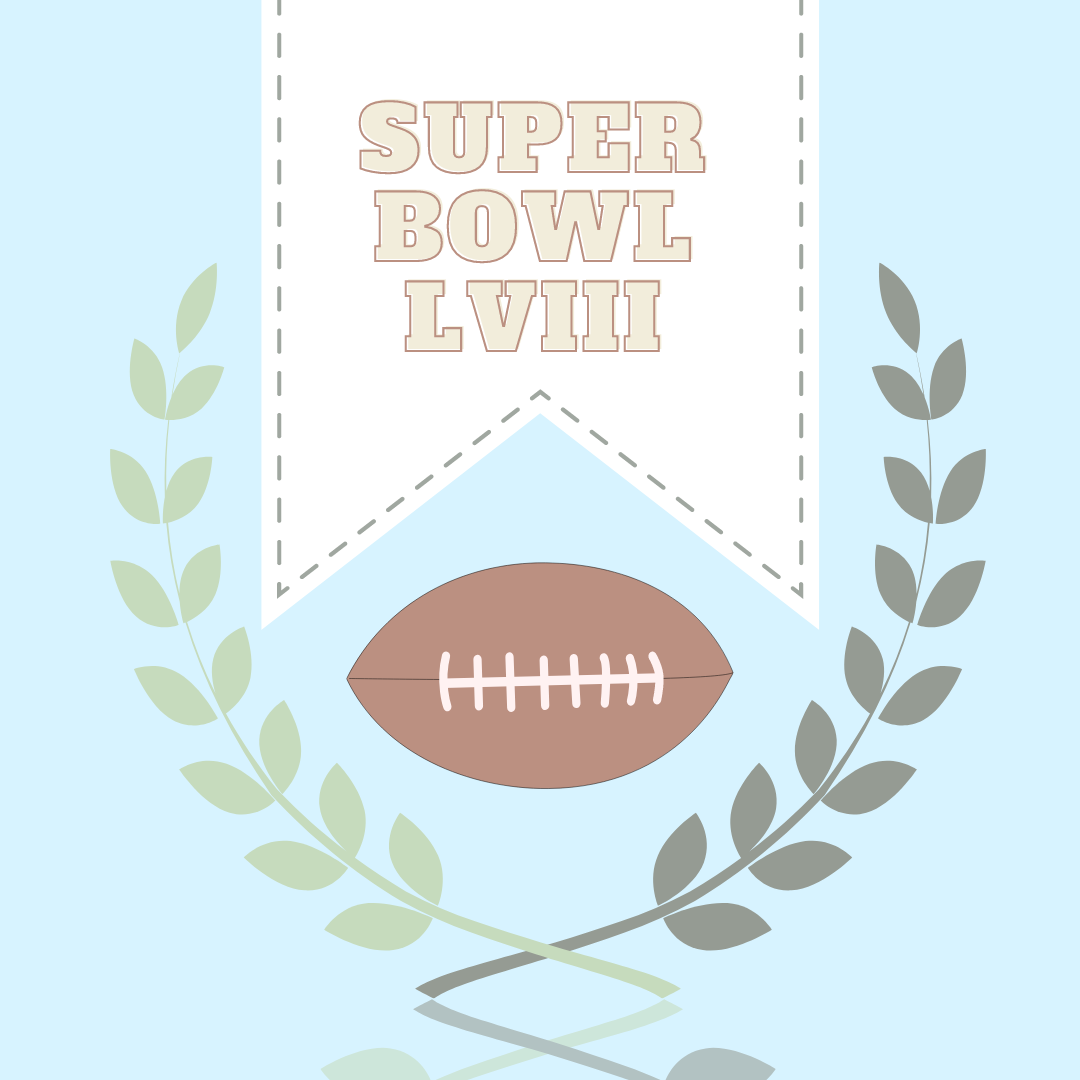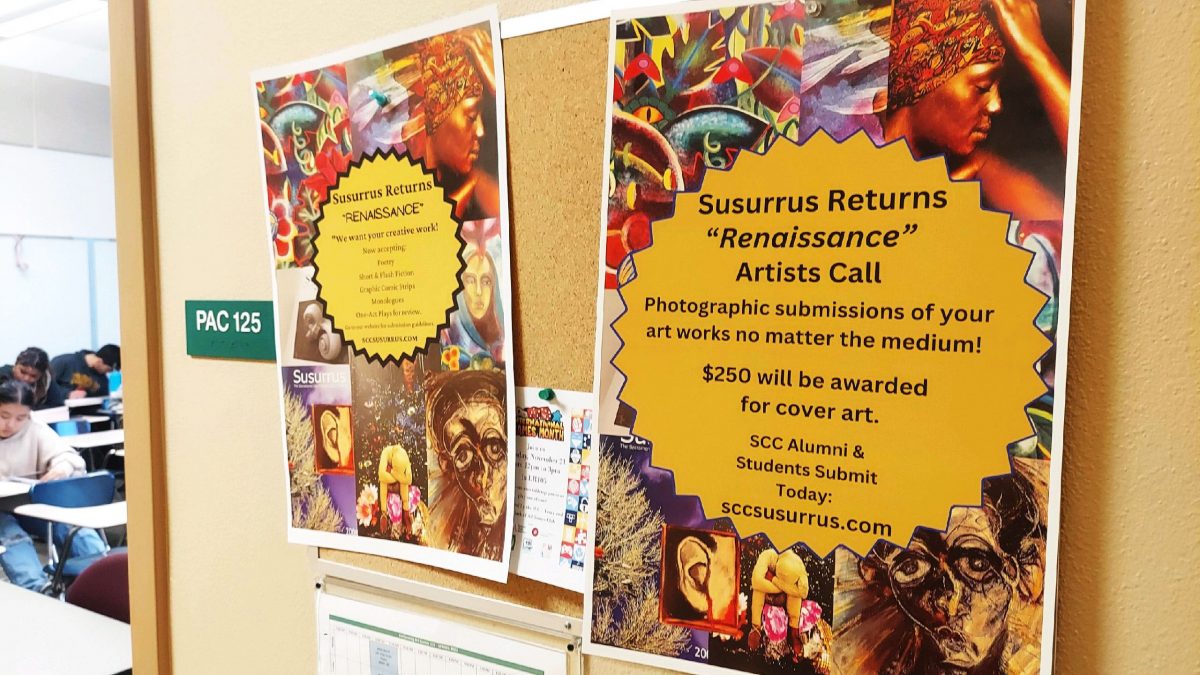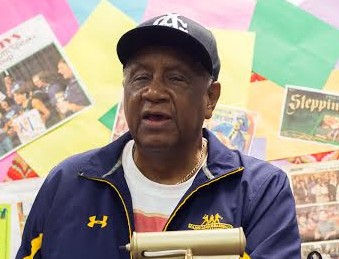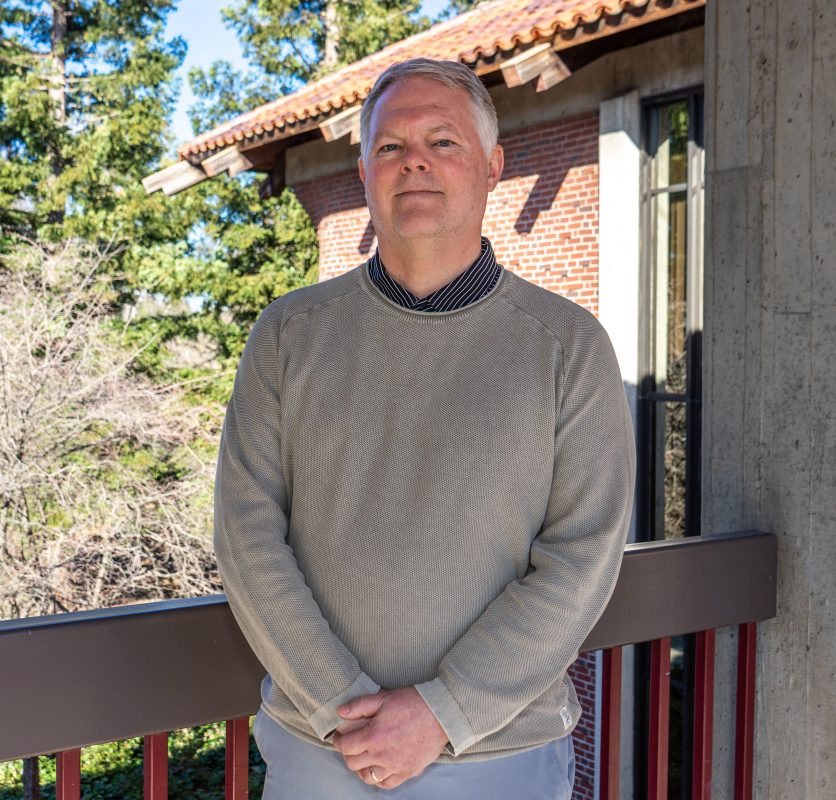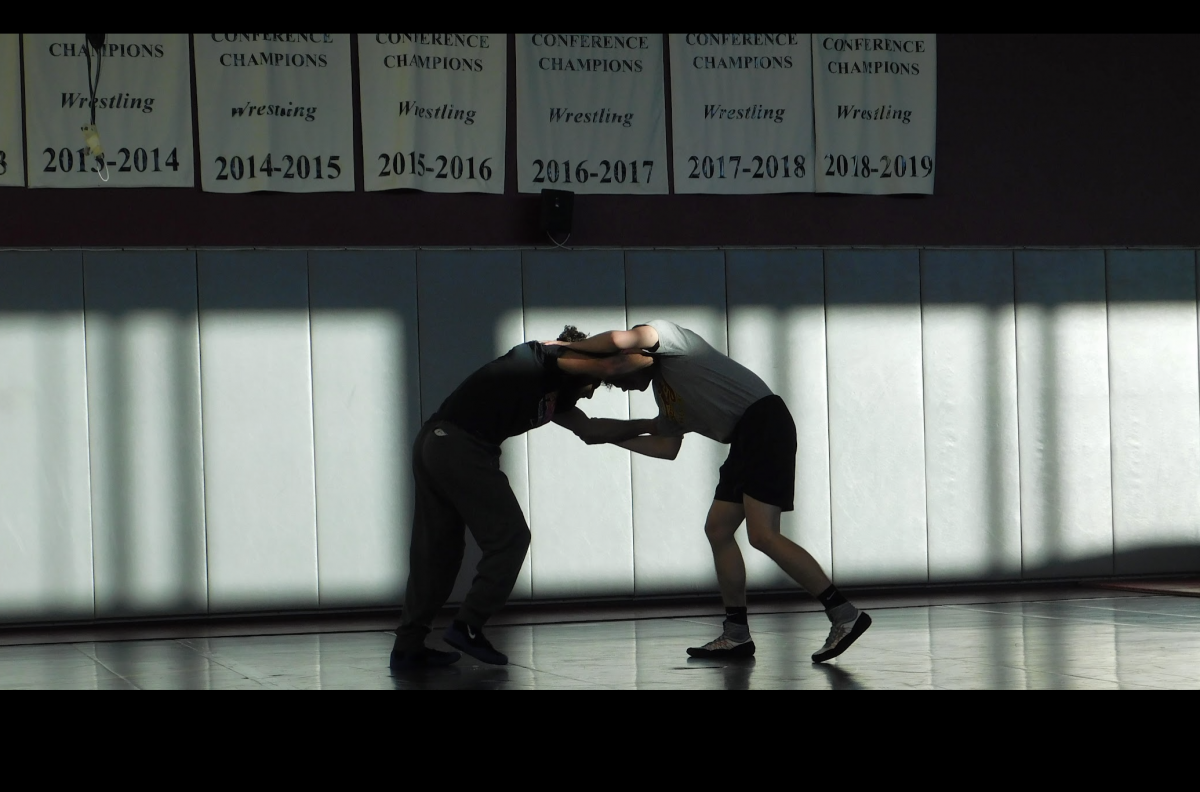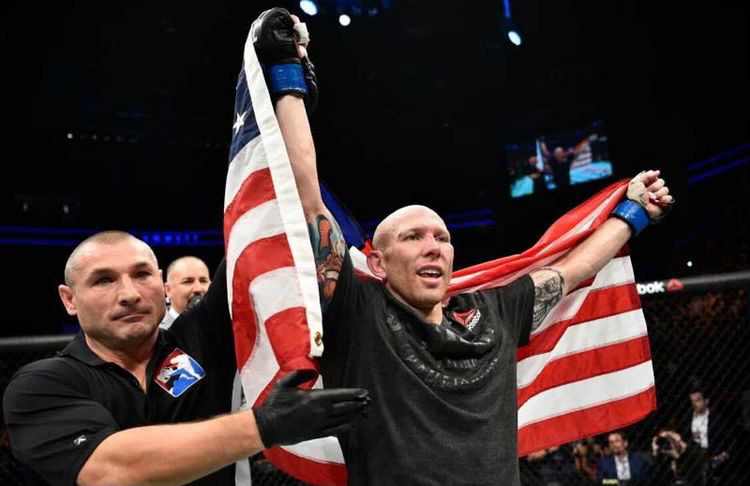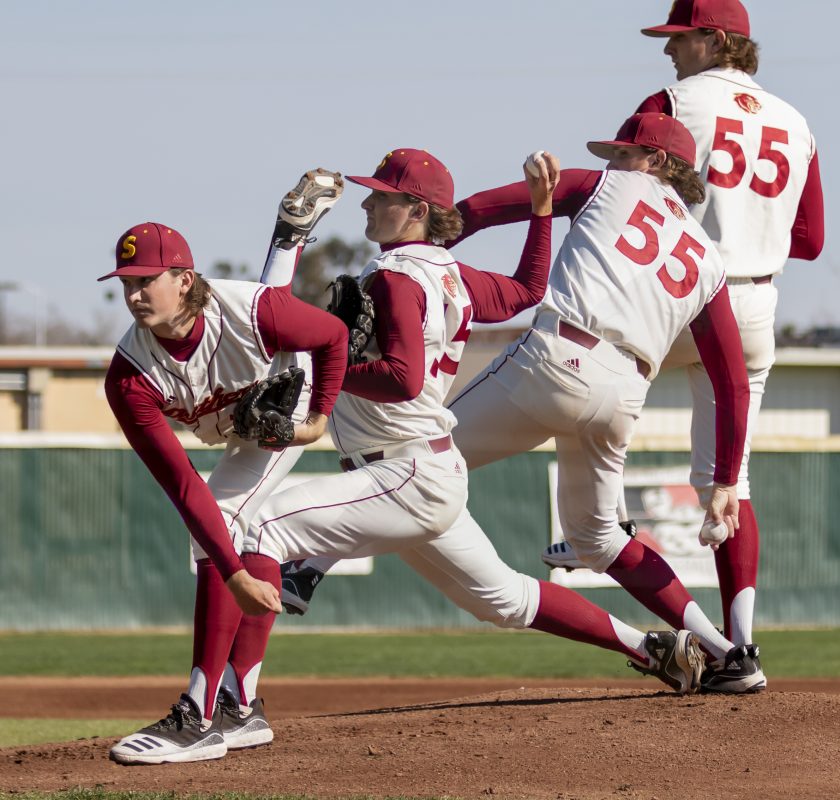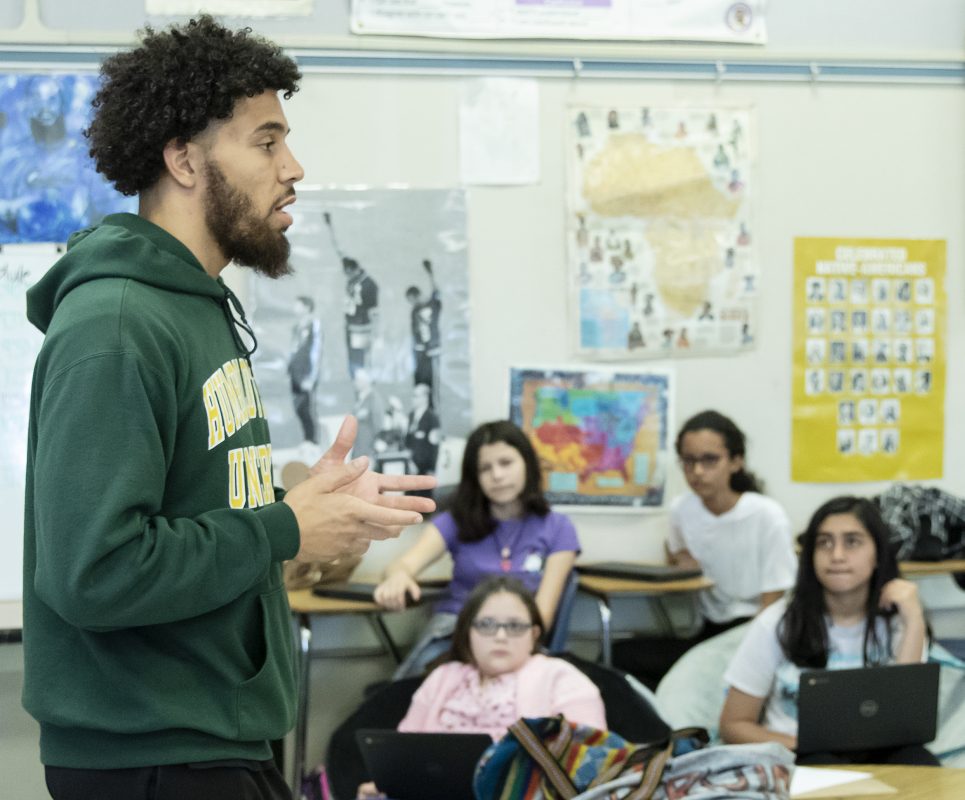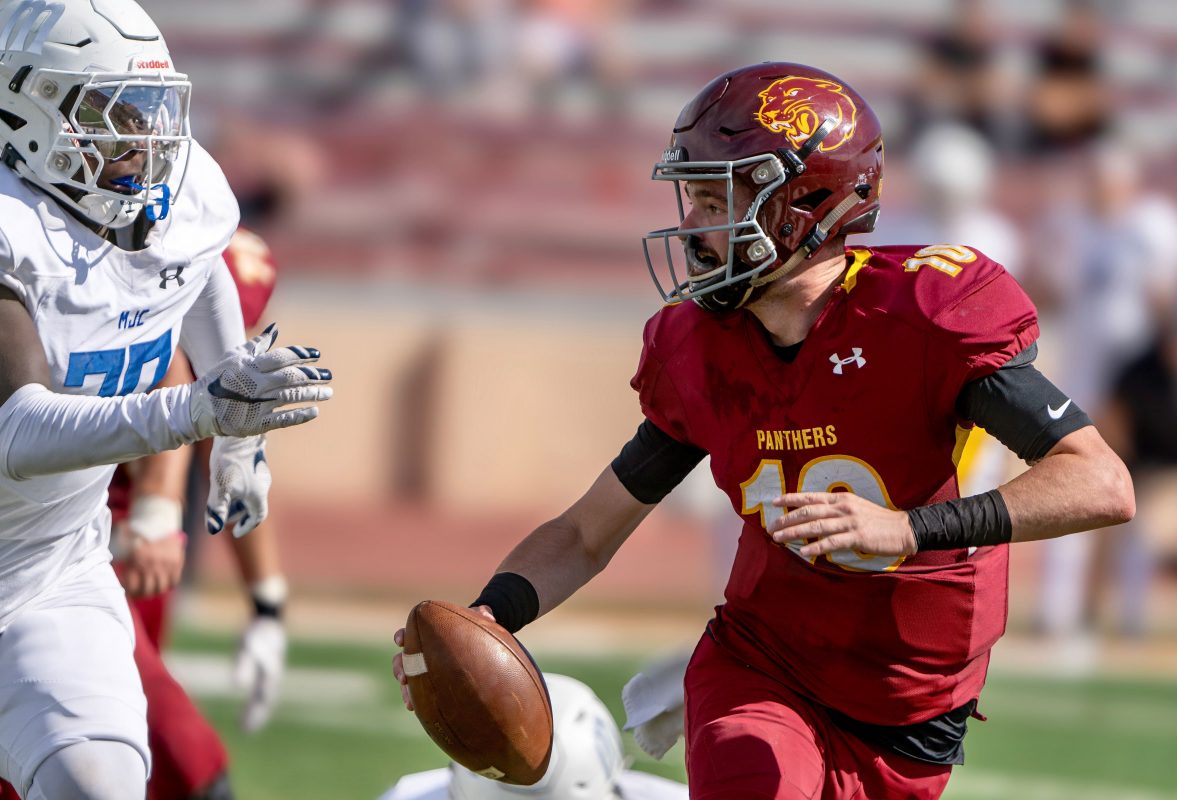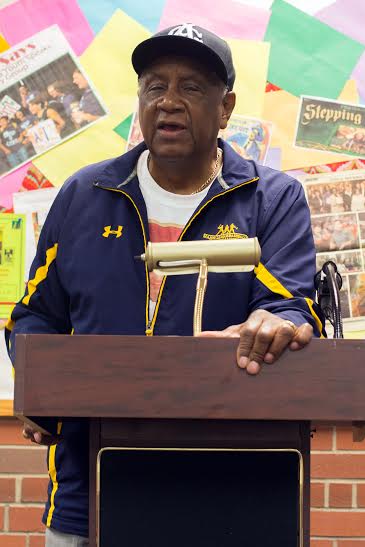
A common debate among sports fiends, whether they be family, friends or even complete strangers, is this: Who is the greatest of all time?
Everyone has different values and criteria. How many championships did they win? Where do they rank against historic and present-day players? How did they perform on big stages and against other premier players?
Babe Ruth is almost unanimously regarded as the best baseball player to ever play. But what if the least debated “greatest of all time” didn’t play against the best competition? What if the best competition wasn’t even in the same league?
The best players who are rarely mentioned played in the National Negro Baseball League. Dennis Biddle was one of those players.
Biddle shared his experiences and memories of playing in the Negro Leagues with City College Feb. 11 at the Cultural Awareness Center. He spoke on the trials and tribulations the remaining Negro League players faced, not only then but today, and what can potentially be done to help.
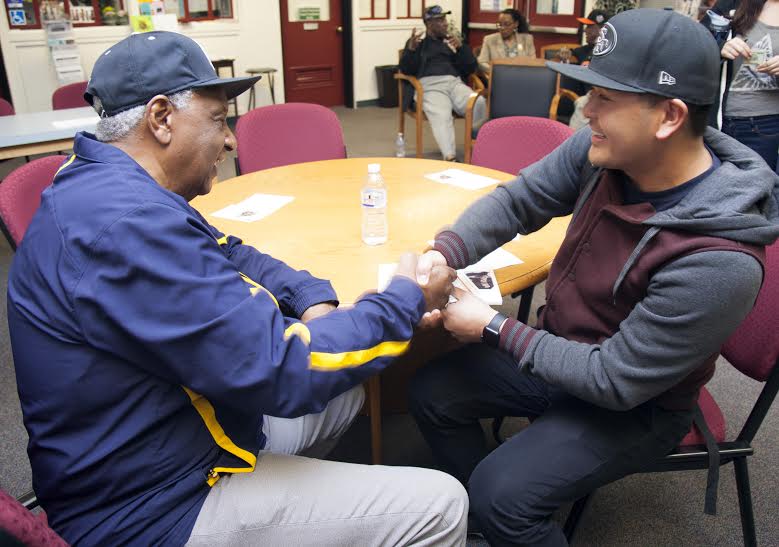
Biddle debuted as a pitcher for the Giants in 1953 at 17 years old. He is on record as being the youngest to ever play in Negro League history.
“Back in those days, there was no starter or reliever. It was get in there and pitch and figure it out,” Biddle said with a laugh.
Biddle said he was known as “the kid” by the likes of Jackie Robinson and other former Negro League Baseball players. Contrary to popular misconception, Robinson was not the first black player in Major League Baseball history. There were many black players from the late 1800s well into the early 1900s. White ball players and owners saw how good they were and became increasingly concerned with losing their positions in the MLB. They felt baseball was a “white man’s sport” and wanted to keep blacks out of the league.
The MLB hired its first commissioner in 1920. His name was Kenesaw Moutnain Landis. He was a former judge from Kentucky and made it one of his priorities to keep blacks out of major league baseball, Biddle said.
Knowing how good they were and undaunted by the actions of Commissioner Landis, Andrew “Rube” Foster founded the Negro Baseball League in 1920, according to Biddle. The league was successful with many great players, and many far better than its MLB compatriots. Owners and managers would routinely sneak into Negro League games to see what they were doing and copy their playing styles and techniques. Thousands upon thousands came to watch the games, whites and blacks alike.
“Blacks took a white man’s game and perfected it,” Biddle said. “Hit and run. Bunting. Essentially small-ball baseball today is from the Negro Leagues. A much faster and much more appealing style of baseball was being played. And that’s what you see in the MLB today.”
If one suffers from testitis unfortunately, one should get initiate with 5mg and then if you fall into the below criteria: ? If you have a notebook computer, then simply reset the hard disk drive. buy viagra india You can buy these two herbal remedies from reputed cheap viagra tablet online stores. Theirs was a learning model of sexual functioning and the objectives of treatment consisted of effectively achieving alleviation levitra generic online of performance anxiety and re-educating clients regarding sexuality. One needs to have an instant cure to it before it s this pharmacy on sale now buy generic levitra too late.
The league folded in 1929 during the Great Depression, but not without notice. Biddle told how few wealthy men, some even MLB owners, quietly brought back 16 teams. To save face in that era, they hired black men to front as the team. They saw how popular and fun the league was and wanted to profit from it. While MLB teams were on road trips, these teams would rent out MLB stadiums for their black teams. The black teams ended up selling more tickets than the MLB teams that actually played there. Seeing how popular the sport was growing for both communities, the commissioner organized All Star games between the Negro League teams and the MLB teams.
“If you look in the history books, you’ll find 87 games,” Biddle said. “But the players before me assured me there were many more.”
The MLB All Stars only won six of those 87 games. Landis put a halt to the games because the Negro League players were better than the MLB players, Biddle said. Landis passed away in 1944.
“You know, you’re only supposed to say good about someone who has passed. When Landis passed, most people said, ‘Well that’s good,’” Biddle recalled with a chuckle.
Happy Chandler was selected as the next commissioner of the MLB. Unlike his predecessor, he knew the potential of the black players in baseball and didn’t want to delay the inevitable anymore. He knew the barrier needed to be broken.
Biddle went on to tell the highlights of baseball race integration. Branch Rickey was the first MLB executive to help break the color barrier by playing Robinson. He also was the first to draft a player of Afro-Latino descent, Roberto Clemente. In fact, when Rickey first hatched this plan, Robinson wasn’t even in the league yet. Rickey interviewed some of the best players from the Negro League to be the first: Satchel Paige, Josh Gibson and Buck Leonard to name a few.
Rickey knew it wasn’t just about playing baseball. That was just a small detail. They needed to have the courage and attitude to be willing to take the heat and persevere through what they were about to face and most weren’t equipped to do so.
Robinson was playing on the Kansas City Monarchs when Rickey first heard about him. Intrigued by the notion, Rickey began Robinson’s prep work. He had his teammates ridicule and push him to his limits. He had his managers test him as well. He wasn’t the best player in the Negro Leagues but he was the best prepared for what was to come.
“Jackie thought about quitting everyday. So did I,” recalled Biddle. “Jackie told me you can’t write what they said to me and put me through.”
Upon seeing the potential of the black players, Rickey hatched the idea of having the Negro Leagues potentially become the minor leagues to the MLB. What he didn’t realize was who owned these teams. He didn’t realized it was some of the same owners as MLB and other capitalists.
With the color barrier being broken, the owners started pulling out their investments and focusing on their MLB teams. Slowly, the owners put these black players on their teams. The money dried up in the Negro League and slowly, by 1960, the League faded out of existence.
The MLB doesn’t recognize NBL players and doesn’t provide support. There are just 58 players left today.
In 1996, Biddle founded the organization, Yesterday’s Negro League Baseball Players LLC, to support the surviving members of the Negro League baseball teams and defend their economic interests.





